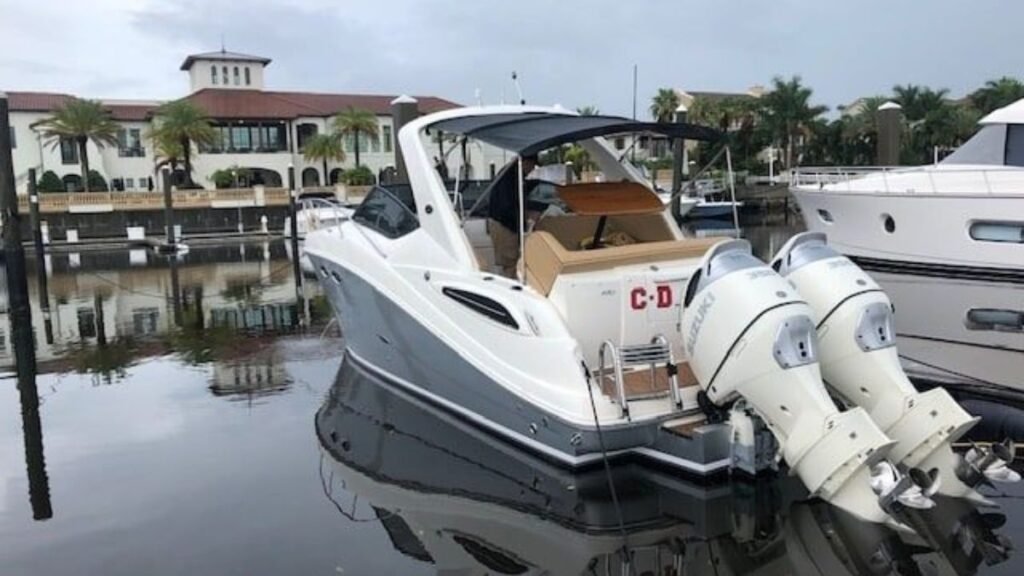Boating enthusiasts understand the importance of a reliable motor. Whether you have an inboard or outboard motor, regular maintenance can prolong its life, but there comes a time when replacement is necessary. Knowing when to replace your motor can save you from unexpected breakdowns and costly repairs.
This guide will outline eight signs that indicate it’s time to consider replacing your motor. If you’re looking for solutions to enhance your motor’s performance, check out options like outboard motor extension kits at Bay Manufacturing.
1. Age of the Motor
One of the most straightforward indicators that it might be time for a replacement is the age of the motor. Most outboard motors have a lifespan of about 10 to 15 years, depending on usage and maintenance. Consider an upgrade if your motor is nearing this age range and has not been adequately maintained. Older motors may need more efficiency and features of newer models, making a replacement a wise choice.
2. Frequent Repairs
If you find yourself constantly making repairs to your motor, it can be a sign that it is time for a replacement. Frequent breakdowns drain your wallet and affect your time on the water. If repairs become routine and costs increase, investing in a new motor may be more economical in the long run. Consider the total cost of repairs against the price of a new motor to make an informed decision.
3. Decreased Performance
Have you noticed that your boat is not performing as well as it used to? Decreased speed, poor acceleration, or difficulty starting can all signal that your motor is failing. If you’ve tried regular maintenance and the performance issues persist, it might be time to replace your motor. A high-performance motor can help you regain the speed and efficiency you once enjoyed.
4. Excessive Fuel Consumption
Rising fuel costs can severely impact your boating budget. If your motor consumes more fuel than it used to, it can indicate inefficiencies due to age or wear. Newer motors are designed for better fuel efficiency, saving you money over time. If your fuel consumption is steadily increasing, consider replacing your motor with a more efficient model.
5. Overheating Issues
Overheating is a serious problem for any motor. If your engine frequently overheats, it can lead to severe damage and potentially catastrophic failure. While some overheating issues can be fixed, persistent problems may indicate that the motor is nearing the end of its life. If you’ve already addressed cooling system issues and overheating continues, it may be time to replace your motor to avoid further damage.
6. Unusual Noises or Vibrations
Unusual noises or vibrations can be signs of serious issues within your motor. It could indicate internal damage if you hear grinding, knocking, or any other irregular sounds. Similarly, excessive vibrations can signal problems with the motor mounts or other components. If you notice these symptoms, it’s essential to have the motor evaluated. If repairs are needed, the cost may lead you to consider a replacement instead.
7. Difficulty Starting the Motor
If your motor is increasingly difficult to start, it may indicate aging components or internal damage. While some starting issues can be resolved with minor repairs, persistent problems often indicate more significant underlying issues. If you struggle to start your motor frequently, investing in a new one may be time.
8. Changes in Use or Requirements
Your boating needs may change over time, necessitating a motor upgrade. You may require a more powerful or efficient motor if you’ve upgraded your boat or plan to use it for different activities, such as fishing, watersports, or longer trips. Assessing your current motor against your new requirements can help determine if a replacement is necessary.
FAQs
How often should I maintain my outboard motor?
Regular maintenance is crucial for prolonging the life of your outboard motor. It’s generally recommended that routine checks, including oil changes, fuel system inspections, and cooling system maintenance, be performed every 100 hours of operation or at least once a year.
What is the average lifespan of an outboard motor?
The average lifespan of an outboard motor is typically between 10 to 15 years, depending on usage, maintenance, and environmental conditions. Proper care can extend its lifespan, but aging components may eventually require replacement.
Can I replace my motor myself?
While some experienced boaters may choose to replace their motor themselves, it is often recommended to consult a professional. Proper installation is crucial for safety and performance, especially when dealing with electrical and fuel systems.
What are the benefits of upgrading to a new motor?
Upgrading a new motor can provide numerous benefits, including improved performance, fuel efficiency, enhanced reliability, and access to the latest technology features. A new motor can significantly enhance your overall boating experience.
Conclusion
Recognizing the signs that it’s time to replace your inboard or outboard motor can save you from unexpected breakdowns and costly repairs. From frequent repairs and decreased performance to age and overheating issues, being proactive about your motor’s condition is essential for a smooth boating experience.
If you see any of these signs, consider an upgrade. Investing in a new motor can enhance your boating adventures and ensure you’re ready for whatever the water has in store. Don’t forget to explore options like outboard motors extension kits to maximize your motor’s performance and capabilities!



